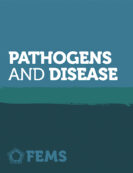Volunteer: Goormaghtigh Frédéric

I am a 30-years old post-doc in molecular biology at the Université Libre de Bruxelles (Belgium). During my PhD, I got interested in bacterial persistence, a phenomenon by which very few bacteria transiently operate a phenotypic switch to an antibiotic-tolerant state. I started working on a controversial model in which toxin-antitoxin systems would rule the entry into persistence. We could finally disprove such model after 5 years of intensive research. The question thus remains open: how do some bacteria tolerate extreme doses of antibiotics? We know tackle this question by combining genetics and single-cell microscopy, a very fascinating approach as it allows one to directly observe and analyze how bacteria react to antibiotic treatments. However and because of the long controversy in my field, I understood how important it is to popularize and disseminate the results of scientific research and most importantly to make sure that the information available for non-specialists is of high quality and correct.
All but one of the FEMS journals are fully open access (OA), with one journal, FEMS Microbiology Letters, offering free-to-publish and OA options. Open access is key to supporting the FEMS mission of disseminating high quality research as widely as possible: when high quality, peer reviewed sound science is open access, anyone, anywhere in the world with an internet connection, can read it.







